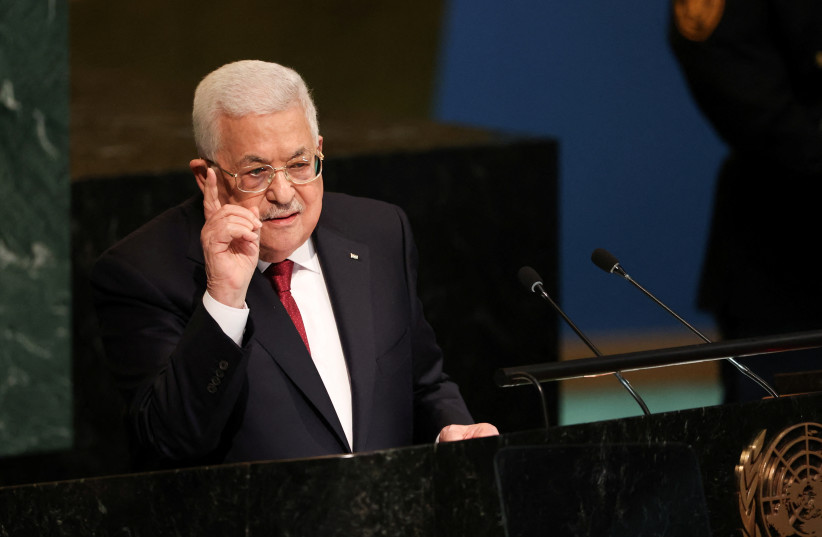US shuns UN’s Nakba Day event over anti-Israel bias
The Biden administration confirmed it stayed away from the two events to mark the 75th anniversary of Nakba Day at United Nations headquarters in New York due to anti-Israel bias on the part of the organizers, even though it provides major financial assistance to Palestinian refugees.
The United States “did not attend this event organized by the Committee on the Inalienable Rights of the Palestinian People, and we never planned to attend this event,” the spokesman for the US Mission to the UN Nathan Evans said in response to a query by The Jerusalem Post on Tuesday.
“The United States also did not attend this event organized by the Committee on the Inalienable Rights of the Palestinian People, and we never planned to attend this event.”
Nate Evans
According to Israel’s mission to the UN, the US was among 45 countries that boycotted the two UN Nakba Day events, including the United Kingdom, Canada, Australia, Albania, Ukraine and India and 11 of the European Union’s 27 member states. Those states were: Austria, Bulgaria, Croatia, the Czech Republic, Germany, Greece, Hungary, Italy, Portugal, Romania and Slovakia.
The two events commemorated what Palestinians view as “the Catastrophe Day,” to mourn the creation of the State of Israel in 1948 and the resulting destruction of Palestinian villages and the displacement of 700,000 Palestinians who became refugees.
 Palestine’s President Mahmoud Abbas addresses the 77th United Nations General Assembly at UN headquarters in New York City, New York, US, September 23, 2022. (credit: CAITLIN OCHS/REUTERS)
Palestine’s President Mahmoud Abbas addresses the 77th United Nations General Assembly at UN headquarters in New York City, New York, US, September 23, 2022. (credit: CAITLIN OCHS/REUTERS)US envoy: We have concerns over anti-Israel bias at UN
Evans said that “the United States continues to recognize the painful plight of Palestinian refugees and remains committed to a mutually agreed two-state solution that settles all final-status issues, including refugees.
He cautioned, however, that the “US has longstanding concerns over anti-Israel bias within the UN system, which is counter-productive to peace. We do not support events organized by bodies designed to perpetuate anti-Israel bias.”
In Washington on Monday, State Department spokesperson Vedant Patel pointed out that the Biden administration had provided close to a billion dollars to help Palestinians, including $730 million in humanitarian assistance for refugees.
The first event included a wide-ranging speech by Palestinian Authority President Mahmoud Abbas who disavowed the Jewish connection to the Temple Mount and the adjoining Western Wall, known to Muslims respectively as al-Haram al-Sharif and the al-Buraq Wall. He called for Israel’s ouster from the UN and accused its government of fabricating facts at a level akin to that of chief Nazi propagandist Joseph Goebbels.
Abbas also charged that the US and the UK were responsible for the Nakba. He accused them of supporting Israel’s creation in part so they can rid themselves of their Jewish citizens.
At no point did he explain that in 1947, the Arab States had been offered a UN General Assembly Resolution 181 (Partition Plan) for two states accepted by the Jews and then they attacked that nascent state launching an existential war.
Abbas did call for the UN to hold such Nakba Day events annually.
Israel’s ambassador to the United Nations, Gilad Erdan, slammed Abbas’s speech.
“Abu Mazen [Abbas] is delusional. At the despicable Nakba event, Abbas dared to compare the Israeli government to the evil Nazi regime among other utterly abhorrent antisemitic lies.
“This antisemite should never have been given a platform by the UN, and the countries that attended are contributing to the spread of the Palestinians’ libelous narrative,” Erdan said.
“The 44 countries that boycotted the event, in addition to Israel, chose not to give in to hate and lies. They deserve to be commended for standing on the right side of history.”
In the evening a second event was held in the UN General Assembly’s main hall and included Palestinian singer Sanaa Moussa, cellist and composer Naseem Alatrash, and the New York Arabic Orchestra, directed by Grammy Award winner Eugene Friesen.
During the event, a number of videos were played that highlighted the suffering of Palestinian refugees as survivors described how residents of their villages were massacred by the pre-state Israeli army during the 1948 war, including in the community of Deir Yasin.
In one film clip, controversial Israeli historian Ilan Pappe accused Israeli leaders of ethnically cleansing Palestinians.“From the mid-1930s… the Zionist’s political and military leadership contemplated and planned the mass expulsion of Palestinians” to demographically engineer a democratic Jewish state, Pappe said.
“The Palestinians do not become refugees because of the [1948] war,” Pappe said. “They became refugees because the Zionist movement planned their massive expulsion,” he charged.
Prior to the event Israel had waged a diplomaticc campaign urging countries not to attend an event that falsified history.
Israel was able to expand the list of opponents by 15 countries compared to the 30 nations that voted against the resolution in November that mandated that the Nakba Day events be held.
Foreign Minister Eli Cohen, however, was not able to sway Sweden, a country he visited that same Monday, to boycott the event.
Cohen lauded those countries who “stood for the truth” and did not participate in the “shameful” event.“We will fight the ‘Nakba’ lie with all our might and will not allow the Palestinians to continue spreading lies and distorting history,” Cohen said.





Comments are closed.